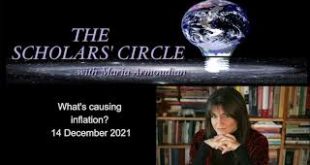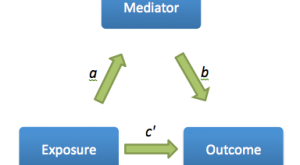Since the COVID pandemic, the United States and other countries have faced challenges in terms of economic recovery. This has resulted in issues such as supply chain disruptions and what has been reported as high rates of inflation. What is inflation? What is causing high inflation? Doug Becker speaks with Dean Baker. Dean Baker is an economist and co-founder of the Center for Economic and Research Policy. He is the author of The End of Loser Liberalism: Making Markets Progressive. For...
Read More »Euro Area inflation: troubling but transitory
Inflation in the Euro Area is high and erodes the purchasing power of many (but not all) incomes. Bad. But it will be transitory. And there is no indication of endogenous macro-economic instability. Why do I think this? I’ll first discuss the (largely) transitory nature of the present price increases, macro (in)stability comes next. Graph 1 shows two metrics of inflation. The first is based on the ‘normal’ consumer price index, but this time without energy and without...
Read More »CO2 emission imports and exports per capita
Will we see deflation in the next 12 months in the USA?
from Dean Baker I’m not worried at this point about a deflationary spiral, but I see what, to my view, is a plausible scenario where the CPI actually goes negative in the next twelve months. I go through the categories and my predictions component by component below, but there are four main items driving the story that I’ll mention here. First, I assume a sharp reversal in new and used car prices. The 11.1 percent increase in the former and 31.4 percent increase in the latter, have added...
Read More »Adam Smith’s idea is still the basis of the discipline of economics
Apology from the editor This post has been withdrawn on grounds of misattribution. But the readers’ comments, which relate to the section beginning on page 50 titled “Adam Smith and the Birth of Western Economics” in Economies and Cultures: Foundations of Economic Anthropology by Richard R Wilk and Lisa C. Cliggett | Jan 2, 2007 have been retained.
Read More »On mediation and causality
from Lars Syll “Mediation analysis” is this thing where you have a treatment and an outcome and you’re trying to model how the treatment works: how much does it directly affect the outcome, and how much is the effect “mediated” through intermediate variables … In the real world, it’s my impression that almost all the mediation analyses that people actually fit in the social and medical sciences are misguided: lots of examples where the assumptions aren’t clear and where, in any case,...
Read More »In the not too long run the economic process is inevitably dominated by a qualitative change
from Katharine Farrell If economics is indeed concerned with how humankind goes about sustaining its own life, day to day, then representing that complexity must be built into the ontology of economic models. Adjustments to variables, parameters and reference data can all contribute to improving models, but they do not necessarily address the ontological limitation that, in the original liberal theory “representation, [read that of Jevons and Walras] the economic process neither...
Read More »The question before the discipline
from James Galbraith Economics is a policy discipline. It is engaged with the problems, large and small, of social organization and the general good. As such it co-evolves with circumstances. It is historically contingent. The application of economic ideas to specific problems under specific circumstances may succeed or fail, and in the latter case, people with different ideas normally rise to prominence. Capitalism is an economic system whose characteristics and problems have preoccupied...
Read More »Domain shift
from Peter Radford Brian Arthur tells us that technology most often advances in the form of domain shifts. In his narrative technologies cluster in related groups he calls domains. So individual technologies might advance through a tweak here or there, but the economy advances through a shift from one cluster of technologies to another. I like this idea. Especially when we then broaden the topic to use technology as a background against which we view a particular slice of history....
Read More »America’s drastically shrinking middle-class
This graph shows how in the USA the share of total net worth held by the 50th to 90th wealth percentiles has decline drastically in the last two decades. https://www.trustnodes.com/2021/07/11/americas-middle-class-drastically-shrinks
Read More » Real-World Economics Review
Real-World Economics Review





